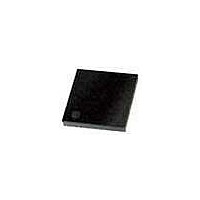PIC18F44K20-E/MV Microchip Technology, PIC18F44K20-E/MV Datasheet - Page 174

PIC18F44K20-E/MV
Manufacturer Part Number
PIC18F44K20-E/MV
Description
16KB, Flash, 768bytes-RAM, 36I/O, 8-bit Family,nanowatt XLP 40 UQFN 5x5x0.5mm TU
Manufacturer
Microchip Technology
Series
PIC® XLP™ 18Fr
Datasheet
1.PIC18F25K20T-ISS.pdf
(456 pages)
Specifications of PIC18F44K20-E/MV
Processor Series
PIC18
Core
PIC18F
Data Bus Width
8 bit
Program Memory Type
Flash
Program Memory Size
8 KB
Data Ram Size
512 B
Interface Type
I2C, SPI, SCI, USB, MSSP, RJ11
Maximum Clock Frequency
64 MHz
Number Of Programmable I/os
35
Number Of Timers
4
Operating Supply Voltage
1.8 V to 3.6 V
Maximum Operating Temperature
+ 125 C
Mounting Style
SMD/SMT
Package / Case
UQFN-40
Development Tools By Supplier
MPLAB Integrated Development Environment
Minimum Operating Temperature
- 40 C
Operating Temperature Range
- 40 C to + 125 C
Supply Current (max)
30 uA
Core Processor
PIC
Core Size
8-Bit
Speed
48MHz
Connectivity
I²C, SPI, UART/USART
Peripherals
Brown-out Detect/Reset, HLVD, POR, PWM, WDT
Number Of I /o
35
Eeprom Size
256 x 8
Ram Size
768 x 8
Voltage - Supply (vcc/vdd)
1.8 V ~ 3.6 V
Data Converters
A/D 14x10b
Oscillator Type
Internal
Operating Temperature
-40°C ~ 125°C
Lead Free Status / Rohs Status
Details
- Current page: 174 of 456
- Download datasheet (4Mb)
PIC18F2XK20/4XK20
In addition to the expanded range of modes available
through the CCP1CON register and ECCP1AS
register, the ECCP module has two additional registers
associated with Enhanced PWM operation and
auto-shutdown features. They are:
• PWM1CON (Dead-band delay)
• PSTRCON (output steering)
16.1
The enhanced CCP module may have up to four PWM
outputs, depending on the selected operating mode.
These outputs, designated P1A through P1D, are
multiplexed with I/O pins on PORTC and PORTD (for
PIC18F4XK20 devices) or PORTB (for PIC18F2XK20
devices). The outputs that are active depend on the
CCP operating mode selected. The pin assignments
are summarized in Table 16-1.
To configure the I/O pins as PWM outputs, the proper
PWM mode must be selected by setting the P1M<1:0>
and CCP1M<3:0> bits. The appropriate TRISC and
TRISD direction bits for the port pins must also be set
as outputs.
16.1.1
Like the standard CCP modules, the ECCP module can
utilize Timers 1, 2 or 3, depending on the mode
selected. Timer1 and Timer3 are available for modules
in Capture or Compare modes, while Timer2 is
available for modules in PWM mode. Interactions
between the standard and enhanced CCP modules are
identical to those described for standard CCP modules.
Additional details on timer resources are provided in
Section 11.1.1
Resources”.
16.2
Except for the operation of the Special Event Trigger
discussed below, the Capture and Compare modes of
the ECCP module are identical in operation to that of
CCP2. These are discussed in detail in Section 11.2
“Capture
Mode”. No changes are required when moving
between 28-pin and 40/44-pin devices.
16.2.1
The Special Event Trigger output of ECCP1 resets the
TMR1 or TMR3 register pair, depending on which timer
resource is currently selected. This allows the CCPR1
register to effectively be a 16-bit programmable period
register for Timer1 or Timer3.
DS41303G-page 174
ECCP Outputs and Configuration
Capture and Compare Modes
ECCP MODULES AND TIMER
RESOURCES
SPECIAL EVENT TRIGGER
Mode”
“CCP
and
Modules
Section 11.3
and
“Compare
Timer
16.3
When configured in Single Output mode, the ECCP
module functions identically to the standard CCP
module in PWM mode, as described in Section 11.4
“PWM Mode”. This is also sometimes referred to as
“Single CCP” mode, as in Table 16-1.
Standard PWM Mode
2010 Microchip Technology Inc.
Related parts for PIC18F44K20-E/MV
Image
Part Number
Description
Manufacturer
Datasheet
Request
R

Part Number:
Description:
Manufacturer:
Microchip Technology Inc.
Datasheet:

Part Number:
Description:
Manufacturer:
Microchip Technology Inc.
Datasheet:

Part Number:
Description:
Manufacturer:
Microchip Technology Inc.
Datasheet:

Part Number:
Description:
Manufacturer:
Microchip Technology Inc.
Datasheet:

Part Number:
Description:
Manufacturer:
Microchip Technology Inc.
Datasheet:

Part Number:
Description:
Manufacturer:
Microchip Technology Inc.
Datasheet:

Part Number:
Description:
Manufacturer:
Microchip Technology Inc.
Datasheet:

Part Number:
Description:
Manufacturer:
Microchip Technology Inc.
Datasheet:










